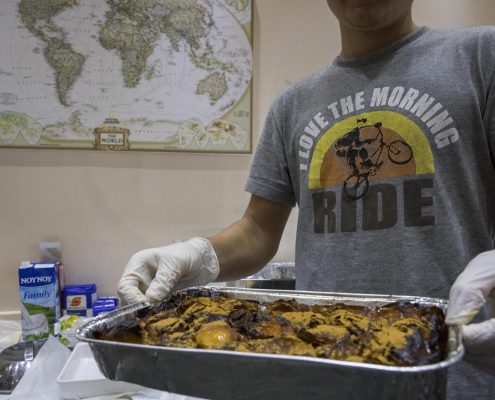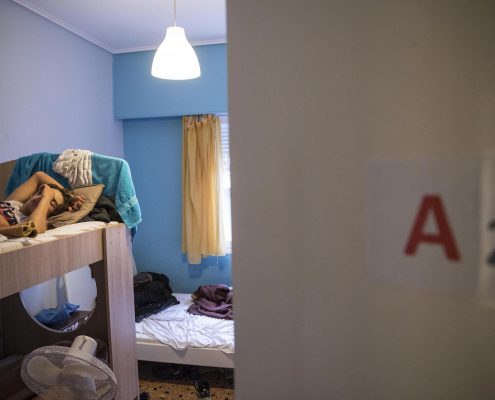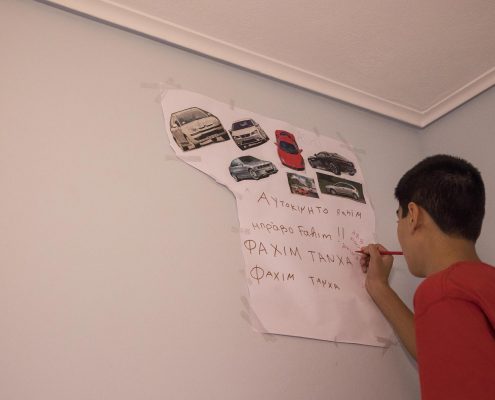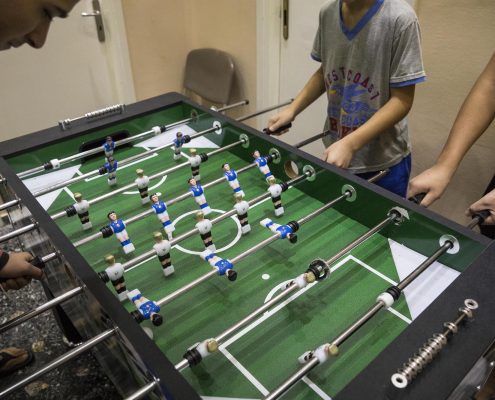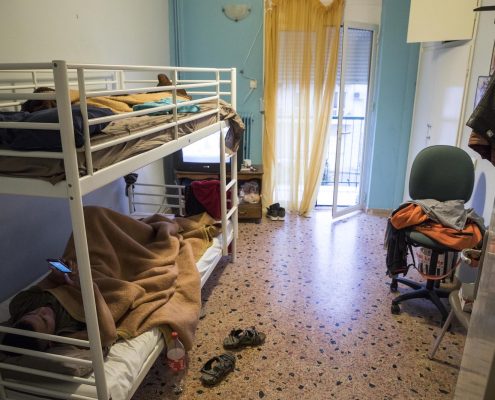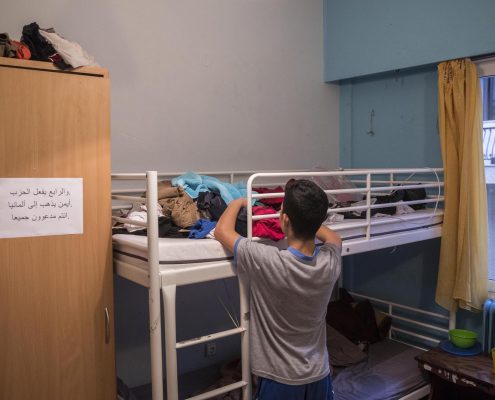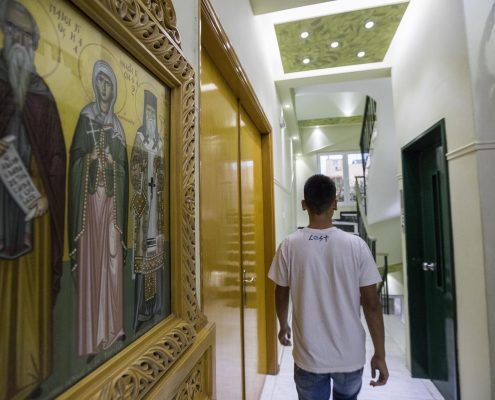Accommodation Facility for Unaccompanied Minors “Estia”, Agios Dimitrios
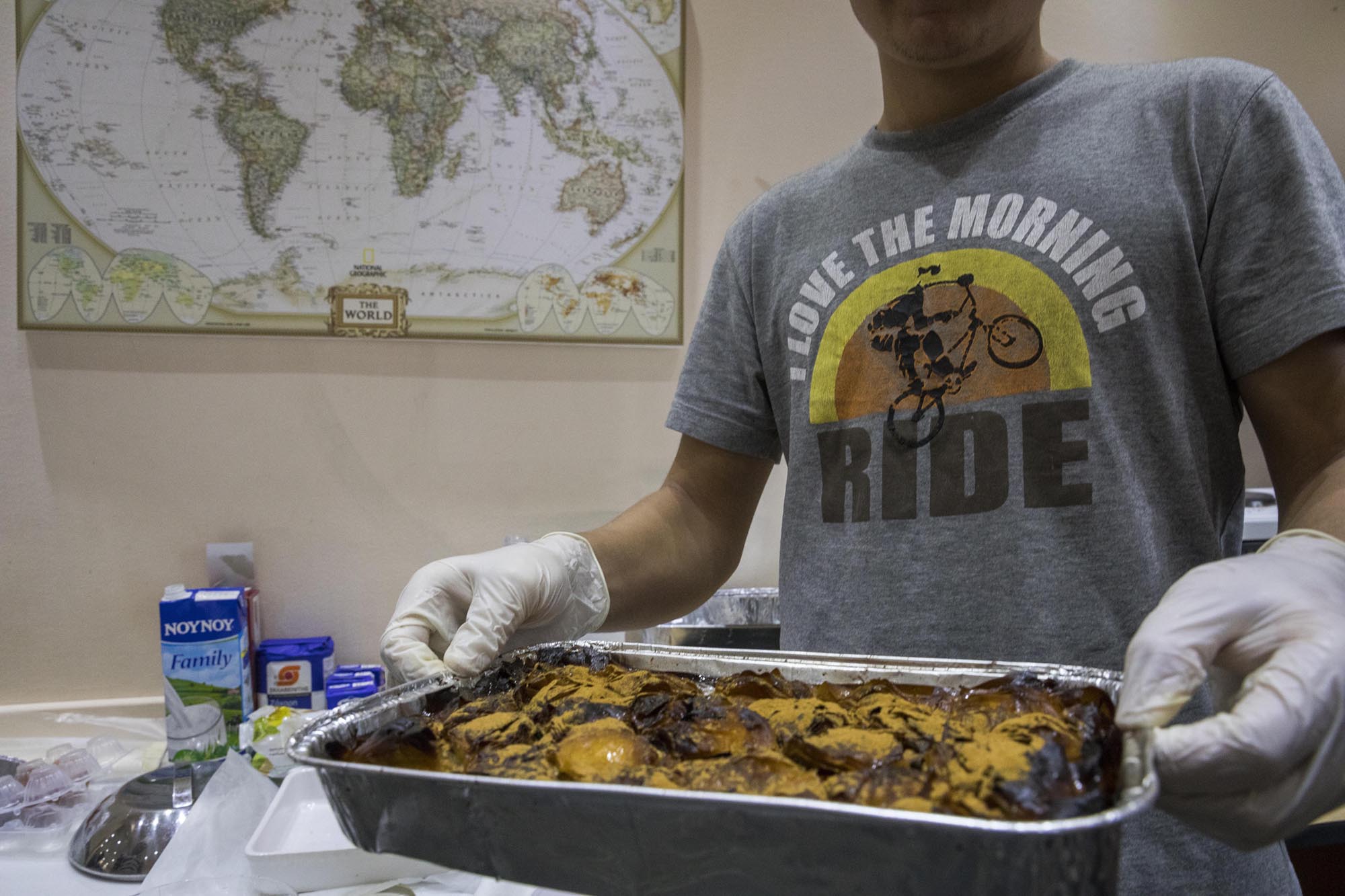
The Accommodation Facility for Unaccompanied Minors “Estia” offers reception and accommodation services for 20 asylum seekers/ refugees.
Furthermore, the Facility aims at providing psychological support and advice on their social integration, creative engagement, primary medical care, Greek language and computer courses.
Unaccompanied minors participate in a wide range of sports, cultural and environmental activities held through the cooperation of “Apostoli” and Holy Archbisphopric of Athens with the local community.
Responding to the objectives of the European Refugee Fund, Apostoli contributes into providing services for unaccompanied minors by establishing and operating an Accommodation Facility in Agios Dimitrios for 20 people.
Additionally, the Accommodation Facility, apart from accommodation services, provides psychological support and advice on the social integration of the hosted people, Greek language and computer courses.
Furthermore, the unaccompanied minors are engaged in a wide range of sports, cultural and environmental activities, which are ensured via the cooperation of Apostoli and Archbisphopric of Athens with bodies of the local society.
An electronic data base is also in operation, facilitating the follow-up procedure of the each-time cases of refugees so as to have measurable results in terms of their integration.
The project is co-funded by the European Refugee Fund and the Ministry of Labour, Social Security and Welfare.
TARGETS
The program has the following short- and long-term objectives:
Short-term:
- Strengthening of the reception and temporary accommodation facilities for newly arrived members of the target group.
- Provision of comprehensive and targeted reception, accommodation and support services for refugees, giving priority to unaccompanied minors.
- Provision of supplementary services for the creative engagement and smoot socialization of the accommodated refugees (i.e. occupational therapy, sports, skill development etc).
- Strengthening of the social and psychological care facilities for the target group, with emphasis on the vulnerable cases.
- Provision of psychological support services, via a comprehensive program of targeted actions (personal sessions, possible psychodrama groups, incentives etc).
- Provision of social integration services, such as personal and social skills’ development, solution of practical issues, integration difficulty management etc.
- Follow-up of the progress of the members of the target group that were the beneficiaries of the provided services (reception and accommodation, psychological and social support).
Long-term:
- Improvement of the effectiveness and efficiency of the protection and help programs for the refugees.
- Strengthening of the country’s ability to manage the big volume of refugees coming through the borders – Development of mechanisms for the management of problems and servicing their special needs.
- Development of communication strategies to increase public awareness and mitigate social conflicts or problems linked to racism and social exclusion.
- Informing the refugees about their rights for the more effective treatment of their needs and their smooth inclusion into the wider social environment (i.e. housing, employment, education etc).
- Psychological and social support, empowerment, encouragement and active participation of the beneficiaries of the target group, and their familiarization with the conditions (social values, political developments, cultural elements etc) of the country of reception.
- Significant decrease in the stay time of the refugees at the accommodation facilities and acceleration of the self-catering procedures by implementing effective programs of supplementary services.
- Cultivation of personal skills and strengthening of the self-confidence of the beneficiaries to make their integration in the social web smooth and help them offer to growth and progress.
- Strengthening of the intracultural dialogue and protection of human rights.
- Improvement of the cooperation between the involved parties, application of best practices and adoption of reliable control and evaluation mechanisms of actions.
Collection of data (qualitative and quantitative) for the beneficiaries of the target group to be recorded and evaluated for further valuable information (i.e. demographic, personal skills, direct needs, personal history, profile, provided services, perspectives etc).
SERVICES
- Personal and group sessions with the hosted minors
- Training in personal care skills (personal hygiene, cleaning) and care for the living space
- Occupational therapy and creative engagement, cooperation with municipal gyms to provide the possibility of physical exercise and socialization
- Advice for the refugees with the purpose of making them independent (by mobilizing adaptation mechanisms, investigating skills and powers, gradually solving problems)
- Psychodrama and discussion group
- Accompaniment to external activities of cultural and environmental interest (visits to museums, cultural spaces, parks)

